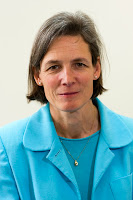Finding an agreed definition of ‘leadership’ has never been straightforward. Constructs of leadership in health and social care are probably even more complex than they are in business or politics, and prone to narrow definitions based on hierarchies and responsibilities. Peter Senge famously observed that genuine leadership is deeply personal and inherently collective. Ron Paterson, in his new book: ‘The Good Doctor – What Patients Want’ observes that health (and social) care are increasingly diversified across a range of specialists and professions. Health and social care is changing, consumers are changing, and the professions need to respond to this in ways which open up possibilities for leadership, rather than closing them down.
In recent years, the NHS has been at the forefront of developing the concept of shared leadership across these professions through various initiatives, notably – the recent publication of the NHS Clinical Leadership Competency Framework (CLCF). This is a helpful and important resource which aims to provide a common language and approach to leadership for all clinicians in the NHS, describing the leadership behaviours that all staff should demonstrate as they develop throughout their careers. The CLCF is based on the idea of ‘shared leadership’. Instead of being confined to those who are in senior roles or who have line management responsibilities, leadership is something that should be demonstrated by all clinicians. All this isn’t intended to take away from the responsibility and accountability of those in managerial positions but, in line with our standards, this emphasises appropriately both individual and collective responsibility for the care and services an organisation provides.
Failures in leadership are often diagnosed to be part of the problem when failures in health and care services are identified but leadership is also seen as integral to the solution. The public inquiry into the failings of Mid Staffordshire NHS Foundation Trust led by Robert Francis is due to report early next year, and the King’s Fund amongst others has predicted that the report will make far reaching recommendations about how quality assurance systems should help to create an environment in which effective leadership can flourish. The King’s Fund has also linked leadership to the challenges facing the NHS, arguing that these challenges require a concept of leadership that is ‘shared, distributed and adaptive’, with clinicians and managers working in partnership.
We have recently published a position statement for education providers which sets-out our position on the CLCF. This sets-out how the framework relates to our role as a regulator, and in particular and responsibility for setting standards for entry to the Register and quality assuring education and training programmes across the UK.
Although they are often talked about separately, I believe that leadership and professionalism are intimately linked. Research we commissioned from the University of Durham found that professionalism, like leadership, could not be defined in exact terms. Professionalism was found to be best thought of as consisting of situational judgements about what to do, and what not to do, in a given situation. The idea of ‘shared leadership’ emphasises our common responsibility in addressing and ensuring professional behaviour – through ‘leading by example’ regardless of our role; taking responsibility for our actions; and reporting concerns where we have them. Karen Middleton, Chief Health Professions Officer at the Department of Health, has recently encouraged Allied Health Professionals (AHP) to engage in a ‘big conversation’ about what is and is not professional behaviour. The aim is to create an environment in which talking about behaviour is commonplace, and unprofessional behaviour is challenged immediately and constructively. Regulators like the HCPC have an important role to play by setting standards and dealing with instances of poor behaviour but this initiative very importantly emphasises our collective ownership of these issues.
Although the focus on the CLCF is developing leadership capabilities within the NHS, we consider that the majority of the content is generic and applicable across the range of different professions we regulate. We are confident that leadership knowledge, skills, attitudes and behaviours as outlined in the CLCF are already well embedded within our standards. Practitioners from the wide range of HCPC regulated professions will develop and augment these competencies as they develop within their careers. However, like professionalism, regulators play only one part in the development of leadership capabilities; this is very much a shared endeavour.
Anna van der Gaag
Chair, Health and Care Professions Council
References
Paterson, R (2012) the Good Doctor – What Patients Want. Auckland University Press
Senge, P In Greenleaf, B. (2002) Servant Leadership. New Jersey, Paulist Press.
King’s Fund Commission on Leadership and Management in the NHS (2011). The future of leadership and management in the NHS: No more heroes. London: King’s Fund.
Dixon, A., Foot, C., Harrison, T. (2012). Preparing for the Francis report: how to assure quality in the NHS. London: King’s Fund.


This is really an interesting and inspirational read. Leadership is something which doctors should take seriously as a responsibility and its evaluation is done through the GMC revalidation process.
ReplyDelete